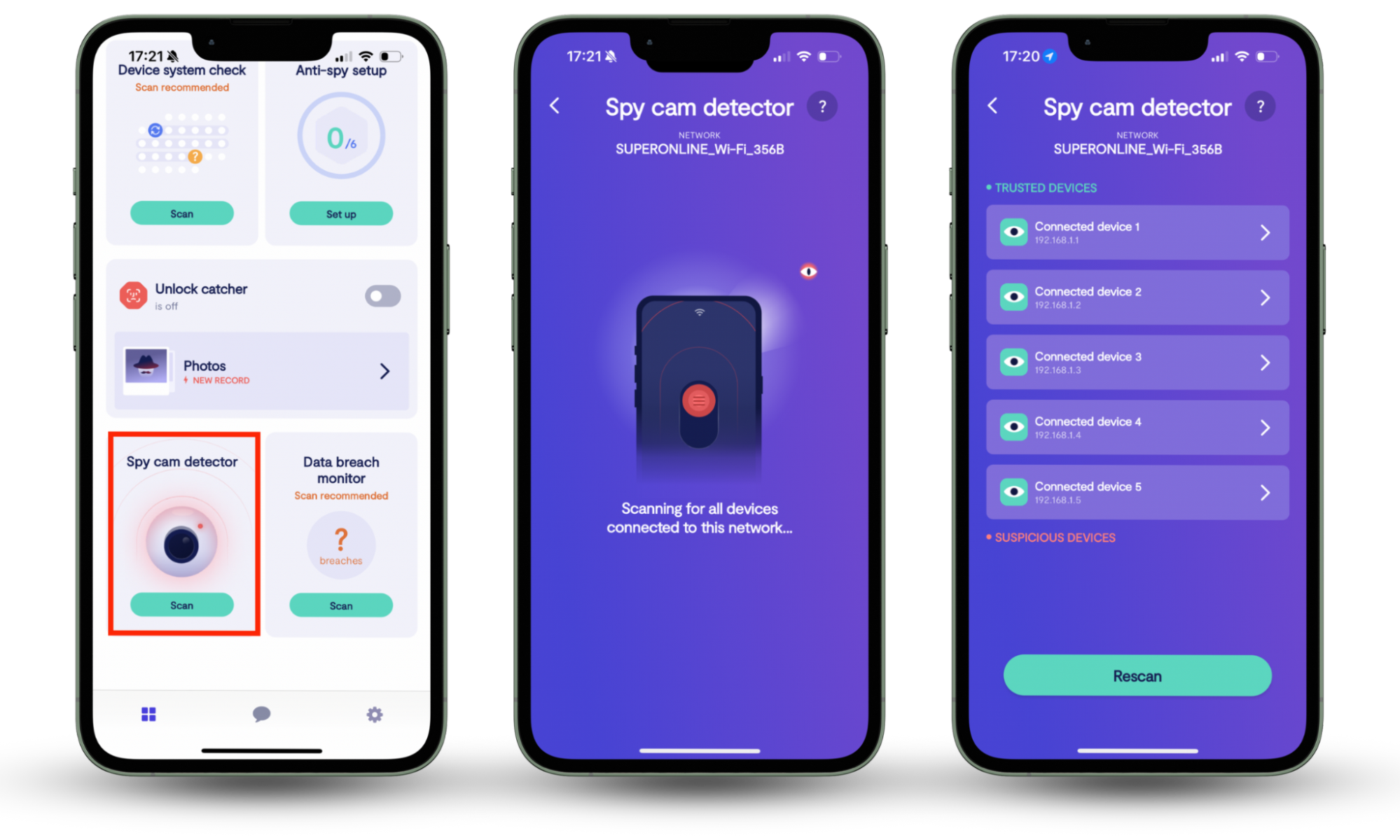Table of contents
- Is a landlord spying on you?
- Can the landlord put cameras in the apartment
- How to find hidden cameras in your rental property
- What can you do if you find cameras
- Conclusion
If you have definitive evidence that your landlord is spying on you, contact a lawyer and the authorities immediately. This behavior is an infringement on your personal rights—and most likely illegal. Don’t try to settle the issue personally. A lawyer and the authorities will instruct you on how to properly proceed.
Is a landlord spying on you?
Before making accusations, it’s crucial that you know definitively that your landlord is spying on you. Surveillance cameras around your rental property are not sufficient. Cameras in public areas like a driveway, garage, hallway, or front door are legal. But if your landlord put cameras in the house without telling you, it could be considered spying.
Can the landlord put cameras in the apartment
Yes, your landlord can put cameras outside the house or property—though they should still inform you. However, in most cases, landlords cannot put cameras in personal living areas without your explicit consent. If a landlord records you without permission, it’s considered an invasion of your privacy and, therefore, illegal.
How to find hidden cameras in your rental property
If you suspect your landlord of using surveillance cameras in your rental property, your first step is to find evidence. Learning how to find hidden cameras will help you gather that definitive proof that you can take to an attorney and law enforcement.
Here’s how to spot hidden cameras in your rental property:
- Physical inspection: Search bedrooms, bathrooms, living rooms, or other high-traffic areas. Look for any unusual wiring, fixtures, or objects that seem out of place, including lights, vents, outlets, mirrors, furniture, and other areas out in the open.
Remember
Some cameras are tiny, but they still need a clear view to spy on you.
- Scan for signals: Hidden cameras often use radio frequencies to function—so you can use a specialized radio frequency detector app to find them. Just download a reliable app on your phone, turn off all other electronic devices, and scan your living area for any hidden radio frequencies.
- Look for a lens: No matter the design, all hidden cameras must have a lens. You can look for a lens by turning off all the lights and using a flashlight to look for any reflections or glinting light. You can also purchase or rent a camera lens finder—these nifty devices are specially designed for the job.
- Listen for sounds: Some hidden cameras emit a humming or buzzing sound. Make sure your property is totally quiet, then listen carefully for any unfamiliar noises. Hear something? This may suggest that your landlord videotapes you or digitally records you.
- Check Wi-Fi: Some hidden cameras or recording devices function on Wi-Fi. Check the list of Wi-Fi networks in your area and look out for any network names that suggest the presence of surveillance or spy cameras.
- Hire professionals: A Technical Surveillance Countermeasure Specialist (TSCS) is equipped with the knowledge and tools to thoroughly sweep your property to detect hidden cameras and other surveillance devices.
Another option is to leverage the Clario Anti Spy’s Spy cam detector, which scans your network to find any cameras connected. It empowers you to take the next steps in addressing your landlord’s gross invasion of privacy, whether it’s confronting them, taking legal action, or finding another place to stay.
Here’s how to find what your landlord is up to with Clario Anti Spy’s Spy cam detector:
- Download Clario Anti Spy on your mobile device and set up an account.
- Find the Spy cam detector block, tap Scan directly below it, and wait for the scan to complete.
- Review the list of devices connected to your Wi-Fi network, focusing on the findings under Suspicious Devices.

But even if your house or apartment is free of spying, you may wonder: Is someone spying on my phone? In fact, online spying is much more prevalent than physical spying. A comprehensive cybersecurity app, like Clario’s AntiSpy, can help you protect your digital privacy.
Clario’s AntiSpy features a suite of powerful security tools that work in synergy to protect all your devices and data from spying. It features data breach detection tools and safe browsing to block ads and trackers and stay clear of unsafe websites. Clario AntiSpy works on mobile (iOS, Android) and desktop (Windows, Mac).
What can you do if you find cameras
If you find out that your landlord put cameras in your house or property, consider it a serious breach of your personal privacy. It’s important that you take the necessary measures to ensure your safety and bring proper justice to your landlord or whoever is responsible.
Here’s what you can do if you find cameras:
- Don’t tamper with the camera: Though you may be tempted to destroy the camera on the spot, leave it alone. Touching, moving, or disabling the camera may interfere with possible case evidence. It’s better to move out of the camera’s sight or just obscure its field of vision.
- Document the incident: Take photos of the camera—close-ups of the device and wide shots of the room. This evidence can be crucial for your case.
- Look up the local law: Laws can vary widely in different jurisdictions. Look up the laws concerning hidden cameras and surveillance in your local area before contacting authorities or lawyers.
- Contact local authorities: If you believe it’s within your rights, contact local authorities and report your findings. They will be able to guide you on how to proceed and may even bring charges against your assailant. It’s possible that you aren’t the only one that’s being spied on.
- Get a lawyer: A lawyer that specializes in privacy and tenant’s rights can advise you on your legal options and help you navigate any tricky legal situations.
- Consider moving out: Even if you get authorities involved to solve the situation, you may not be able to trust your landlord again. A clean break will help you breathe easy and move on from the whole ordeal.
Conclusion
Though it may be within the legal rights of some landlords to install cameras, you don’t have to tolerate recording devices that invade your personal privacy. If you suspect that your landlord is spying on you, thoroughly check your living areas, understand your rights, and if need be, move out. And take a similar, no-nonsense approach to your online privacy with Clario’s Anti-Spy.
Our comprehensive online security app is designed to protect all your devices from various cyber threats. The app's mobile (iOS, Android) versions contain a Spy cam detector to help you weed out an obtrusive and inappropriate landlord watching you through a secret camera. Use it to protect yourself and stop your landlord in their tracks.


